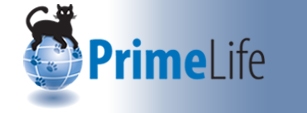News
Participation is limited to people who submitted position papers (this includes co-authors). We need all participants to fill out the registration form which is required for logistical purposes. Registrations will be accepted up to the end of Monday, 9 November.
The program committee is currently reviewing the position papers and we plan to invite presentations on selected papers. Presentations should be short (15 minutes or so) and focus on salient points that are relevant to the workshop's goals. We aim to encourage plenty of discussion!
Workshop Goals and Scope
This workshop brings together worldwide research and user communities to explore evolving application scenarios for access control technologies, such as XACML. Results form a number of recent European research projects in the grid, cloud computing, and privacy areas show overlapping use cases for these technologies that extend beyond classical intra-enterprise applications. At this workshop, we will explore commonalities between different application scenarios, and standardization needs (at W3C and elsewhere) above and beyond the technology substrate that exists today.
Audience
We aim to enable a dialogue within a broad and diverse audience, spanning practitioners, implementers, and researchers.
Scope
The workshop is intended to discuss issues around access control in very wide sense, encompassing conditions and rules derived from the fact of accessing information. Topics that might serve as appropriate discussion points for position papers include, but are not limited to:
- interaction between access control and privacy policies
- language extensions to connect access control languages to novel types of credentials
- large-scale cloud and grid computing use cases for access control technologies
- policy management
- mechanisms for controlling progressive disclosure of information by user agents and servers
- the emerging role of trust delegation and supportive mechanisms in cloud computing, grid, and Web use cases
- mechanisms for richer user control over downstream data controllers
The workshop will examine experiences and recent research results in these areas, their need for agreed semantics, the need for extensions to existing access control languages, and perhaps for radically new approaches.
Workshop Goals
This workshop is intended to explore the wider space of access control applications. It is W3C's goal to facilitate a broad dialogue of relevant industry and research players. By identifying commonalities between access control applications across diverse use cases, the workshop will help identify standardization opportunities in the access control space, both at W3C and elsewhere.
Sponsors
![]()
![]()
![]()
The workshop is co-financed by the European Commission 7th framework program via the Primelife project.
Important Dates
| Date | Event |
|---|---|
| 18 September 2009 | Call For Participation issued. |
| 27 October 2009 | Deadline for position papers. |
| 4 November 2009 | Acceptance notification sent |
| 9 November 2009 | Deadline for registration; program released. |
| 17/18 November 2009 | Workshop. |
Requirements for Participation
- Each participant in the workshop must be associated with a position paper. Position papers must be submitted no later than 27 October 2009.
- W3C membership is not required in order to participate in the Workshop.
- The total number of participants will be limited. To ensure diversity, a limit might be imposed on the maximum number of participants per organization.
- Instructions for how to register will be sent to submitters of accepted position papers. These instructions will also indicate a possible limit on the maximum number of participants per organization.
- Workshop sessions and documents will be in English.
Position Papers
Position papers are the basis for the discussion at the workshop. These papers will also be made available to the public from the workshop site.
Topics
Position papers should contribute to the workshop's discussion about
- detailed use cases and requirements for the semantics in service scenarii and for service discovery;
- ontologies with semantics conveying information about semantics of clouds, access control, privacy or security;
- candidate technologies and existing work in these areas.
They should also explain the participants' position with respect to possible specific work items that W3C could take up in within the workshop's broader scope.
Format
All papers should be 1 to 5 pages, although they may link to longer versions or appendixes.
Accepted position papers will be published on the public Web pages of the workshop. Submitting a position paper comprises a default recognition of these terms for publication. Allowed formats are (valid) HTML/XHTML, PDF, or plain text. Papers in any other formats will be returned with a request for correct formatting. Good examples of position papers can be seen in the W3C Workshop on Languages for Privacy Policy Negotiation and Semantics-Driven Enforcement.
The Program Committee may ask the authors of particularly salient position papers to explicitly present their position at the workshop to foster discussion. Presenters will be asked to make the slides of the presentation available on the workshop homepage in HTML, PDF, or plain text.
Position papers must be submitted via email to team-policy09-ws@w3.org no later than 27 October 2009.
Workshop Organization
Workshop Chairs
- Hal Lockhart (Oracle)
- Rigo Wenning (W3C)
Program Committee:
- Michele Bezzi (SAP)
- Laurent Bussard (Microsoft)
- Marco Casassa-Mont (Hewlett-Packard)
- David Chadwick (University Kent)
- Franz Kudorfer (Siemens)
- Hal Lockhart (Oracle)
- Gregory Neven (IBM)
- Dave Raggett (W3C)
- Babak Sadighi (Axiomatics)
- Pierangela Samarati (University Milano)
- Amardeo Sarma (NEC)
- Rudolf Schreiner (ObjectSecurity)
- Rigo Wenning (W3C/ERCIM)
- Philip Wieder (TH Dortmund)
Venue
The Workshop will be held in the Abbaye de Neumünster in Luxembourg. The Abbaye is easily accessible via a public lift from the City center of Luxembourg where a broad variety of Hotels are available.
Deliverables
Position papers will be put on the workshop's web-site. The agenda and the accepted presentations will also be published online. The chairs will issue a report with further recommendations no later than 20 December 2009.
